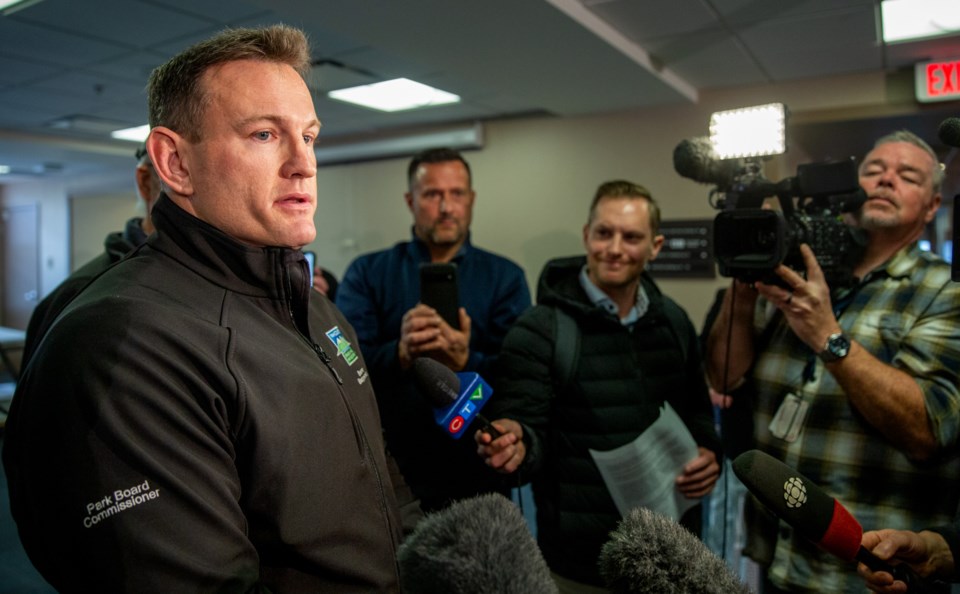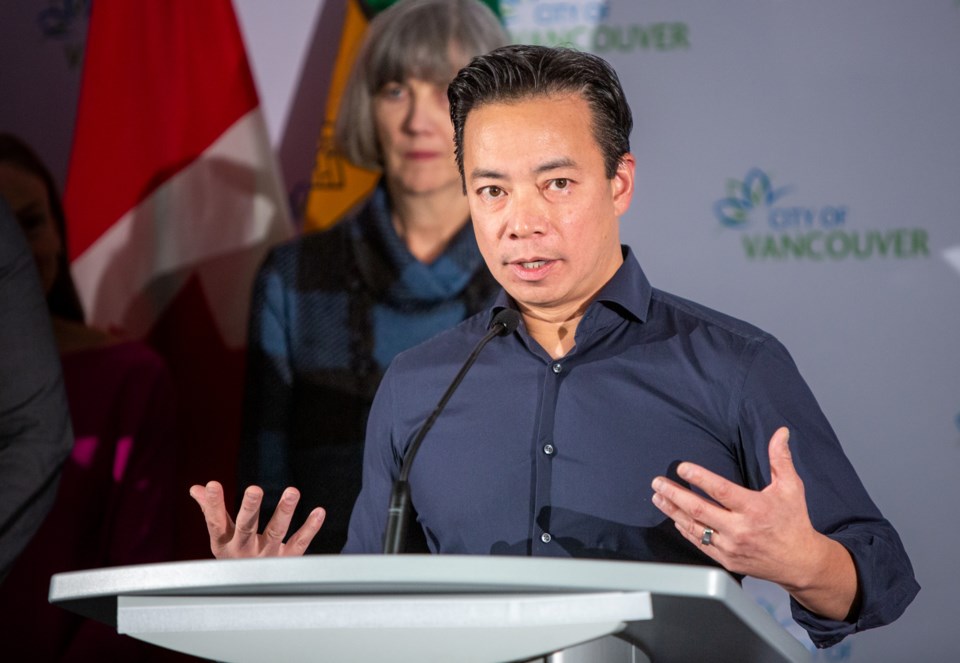Mayor Ken Sim announced Thursday that abolition of the elected Vancouver park board and bringing parks and recreation under the control of city council will lead to $70 million in savings over the next decade.
In what the mayor described as a streamlining of services, the transition is expected to achieve further savings once a new governance model is established, including millions of dollars in infrastructure project costs.
“And these are conservative estimates,” Sim told reporters at city hall Thursday.
A city staff report that goes before council Nov. 27 estimated savings of $1.5 million to $3 million per year alone on “position savings,” which staff at a technical briefing prior to the news conference said will see park board staff fill city vacancies.
"Our goal is not to have any staff layoffs," said deputy city manager Sandra Singh, adding that staff continues to meet with unions representing park board workers.
Savings of $1.8 million to $3.3 million per year were identified under a category called “early operational integration opportunities.” For example, staff who currently support the elected park board could move into the city clerk’s office.
Arts and culture, communications and marketing and social policy were some of the other areas identified as amalgamating to avoid duplication of services. The report estimated, so far, that 10 to 20 positions could be affected by duplication.
Abolishing the seven-member elected board would translate to a savings of $280,000 per year, or $2.8 million over 10 years, said the report, which gave no indication when the park commissioners would be phased out.
'Unlikely this would be a priority for the province'
The hurdle for Sim since he announced in December 2023 that he wanted to abolish the board has been getting the provincial government to make the necessary amendments to the Vancouver Charter.
Premier David Eby initially committed to honouring the mayor’s request — which was supported by the seven councillors belonging to his ABC Vancouver party — but suggested during the recent election campaign that it wasn’t a priority.
“It's very unlikely this would be a priority for the province before the next municipal election [in 2026], and they've got a lot of work ahead of them,” Eby told an audience at an all-candidates’ meeting Oct. 12 at St. James Community Square.
Glacier Media contacted the provincial government Thursday for an update on Vancouver’s request. Municipal affairs now falls under Housing Minister Ravi Kahlon’s portfolio.
“We have received the City of Vancouver’s transition report, and we are reviewing it," Kahlon said in an emailed statement. “We have been clear that our top priority will be to deliver on the priorities of British Columbians. That includes the costs of daily life, strengthening healthcare, and building safe communities in a strong economy.”
Asked about Eby’s position, Sim said he wouldn’t comment on private conversations he has had with the premier but added that his office had “an incredible working relationship” with the premier’s office.

'Erodes the trust in democracy'
Brennan Bastyovanszky, chair of the park board, was at city hall Thursday to hear what Sim and city staff told reporters about the transition. Bastyovanszky was a member of ABC Vancouver until Sim announced he wanted to abolish the board.
He told reporters after the news conference that he didn’t believe the numbers staff provided regarding savings, calling them “dubious.” He also questioned how city councillors could add parks and recreation to their duties, when they already put in long hours.
“The amount of workload that the councillors would take on equates to an extra two days of work a week, on top of a full-time job,” Bastyovanszky said. “I don't see how the council is going to be able to manage that. It's going to remove access to elected officials and decision-makers.”
Added Bastyovanszky: “This is a centralization of power that does not benefit the people in Vancouver. It erodes the trust in democracy.”
The mayor said the transition will allow the city to legally designate 89 acres of land as permanent parkland, including sections of Stanley Park. Sim said the land would be protected, accessible and sustainable for generations to come.
Beyond saving money and securing more green space, the transition is about improving how the city gets things done, said Sim, who was joined on a podium by First Nations leaders, city councillors and members of the transition team.
“Right now, we are seeing significant delays in critical projects that impact our city — sewer upgrades, green infrastructure, streets, public spaces — they're being delayed, in some cases, by up to two years,” he said, noting a recent pump station project saw costs increase by $2 million because of extended negotiations with the park board.





